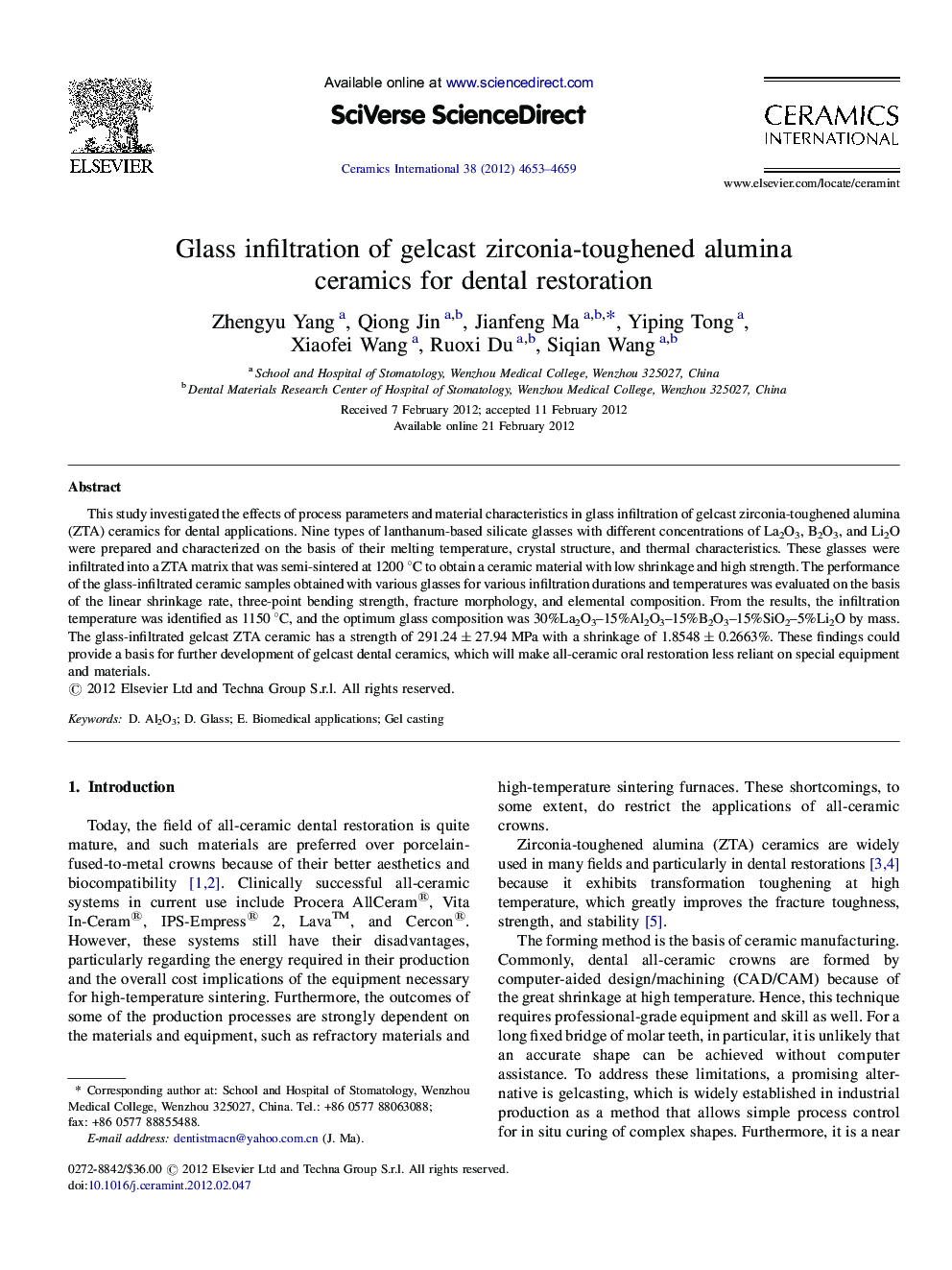| Article ID | Journal | Published Year | Pages | File Type |
|---|---|---|---|---|
| 1463730 | Ceramics International | 2012 | 7 Pages |
This study investigated the effects of process parameters and material characteristics in glass infiltration of gelcast zirconia-toughened alumina (ZTA) ceramics for dental applications. Nine types of lanthanum-based silicate glasses with different concentrations of La2O3, B2O3, and Li2O were prepared and characterized on the basis of their melting temperature, crystal structure, and thermal characteristics. These glasses were infiltrated into a ZTA matrix that was semi-sintered at 1200 °C to obtain a ceramic material with low shrinkage and high strength. The performance of the glass-infiltrated ceramic samples obtained with various glasses for various infiltration durations and temperatures was evaluated on the basis of the linear shrinkage rate, three-point bending strength, fracture morphology, and elemental composition. From the results, the infiltration temperature was identified as 1150 °C, and the optimum glass composition was 30%La2O3–15%Al2O3–15%B2O3–15%SiO2–5%Li2O by mass. The glass-infiltrated gelcast ZTA ceramic has a strength of 291.24 ± 27.94 MPa with a shrinkage of 1.8548 ± 0.2663%. These findings could provide a basis for further development of gelcast dental ceramics, which will make all-ceramic oral restoration less reliant on special equipment and materials.
